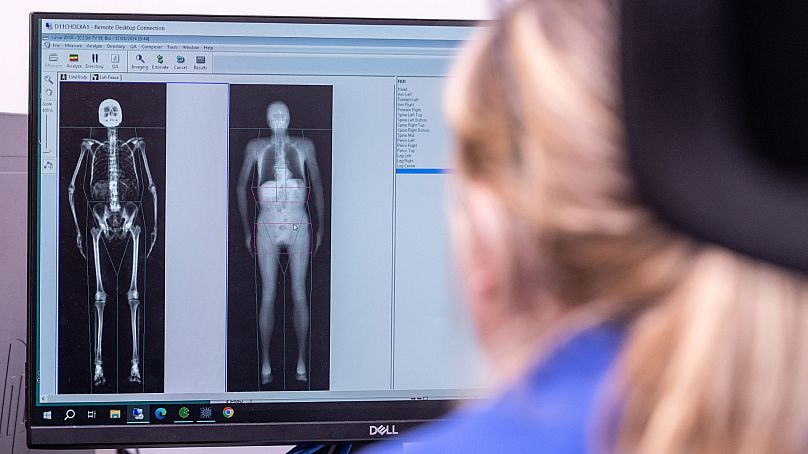Scientists around the globe will gain fresh insights into the human body after UK Biobank completed the world's largest full-body imaging study.
The biomedical research project scanned 100,000 British volunteers from head to toe, producing more than one billion images of brains, hearts, bones, blood vessels, and more – which are now available to approved researchers worldwide.
“Our work really enables researchers to look inside our bodies and to see how our organs change as we get older and as we develop disease in incredible detail and on a massive scale, which just is not possible with other studies,” Naomi Allen, UK Biobank's chief scientist, told Euronews Health.
"It's at least three times bigger than the next largest imaging study for research, and it's certainly the most accessible for researchers worldwide to use the data,” she added.

Helping spot early-signs of illness before it strikes
The project, which began scanning participants 11 years ago, now provides detailed scans of the body and links each image with genetic, lifestyle, health, and physical data.
This information has already helped researchers detect early signs of heart disease, psychiatric conditions, and even challenge long-held assumptions about alcohol consumption.
One analysis found that drinking just one to two units of alcohol per day was associated with reductions in brain volume and changes to its structure – potentially contributing to memory loss and dementia.
“Many serious diseases like heart disease, cancer, dementia, Parkinson's disease, begin quietly and take years for symptoms to develop,” Allen said. “These imaging scans can identify early warning signs".
"For example, the amount of fat around our heart is a really good indicator of whether someone might go on to develop heart failure. You can use that as a biomarker and treat them before it's too late," she added.
Founded two decades ago, UK Biobank now follows the health of about 500,000 British participants. In addition to the imaging project, it also collects data on people's genes, environments, health records, and more.
With the full imaging set now complete, more than 22,000 researchers worldwide have access to the data in order to do "health research that's in the public good," Allen said.







